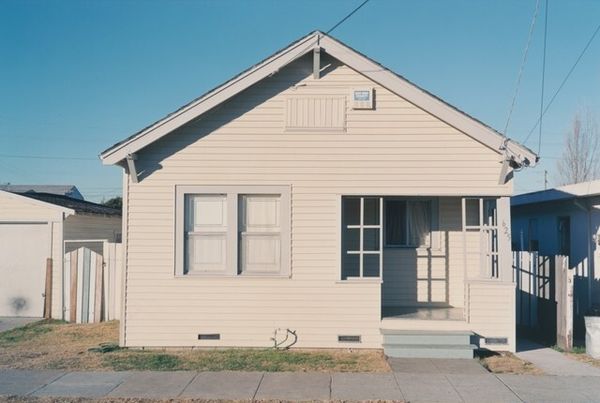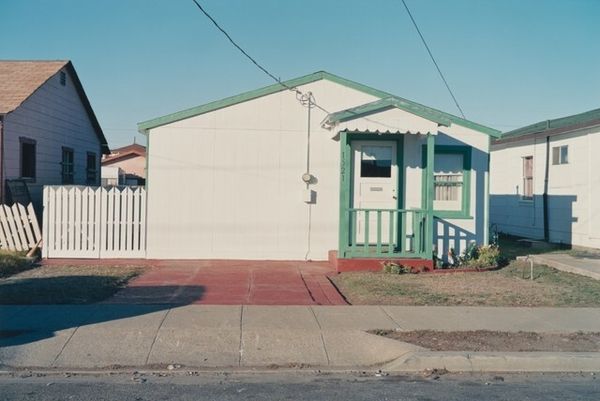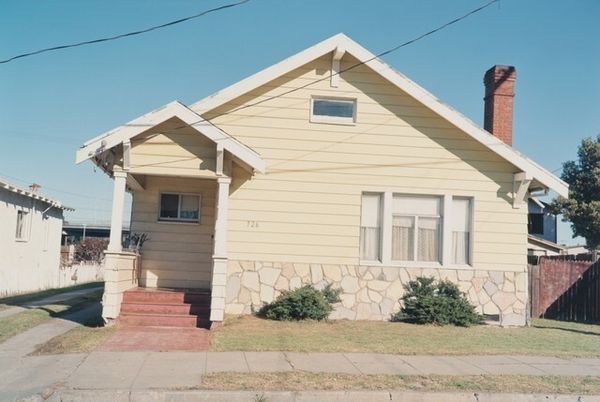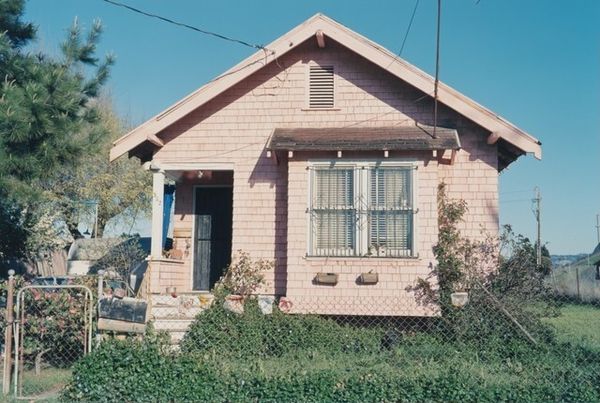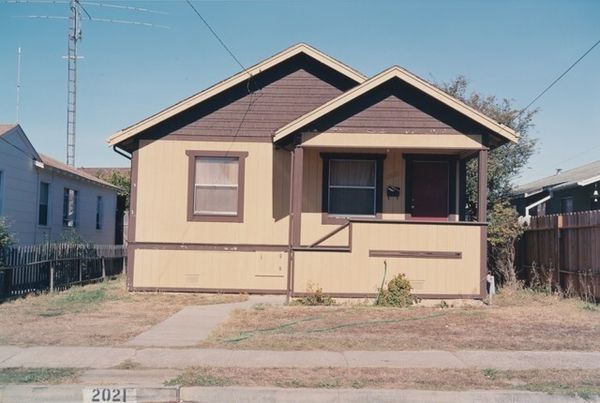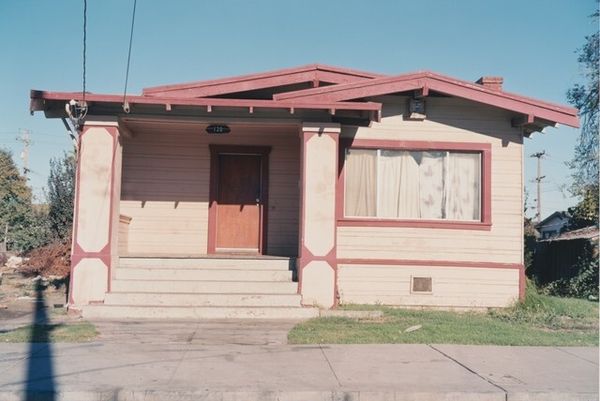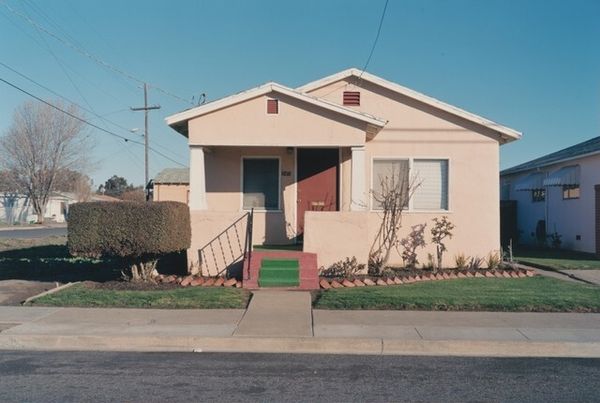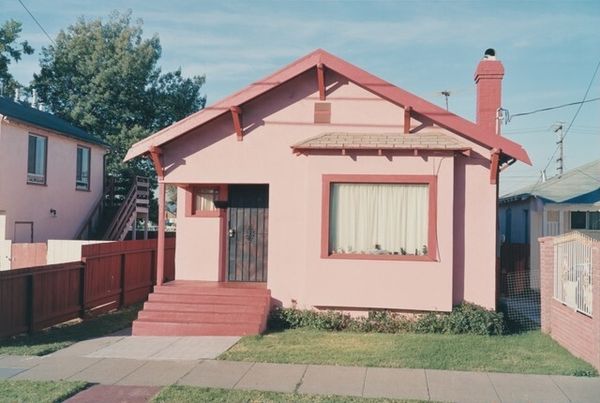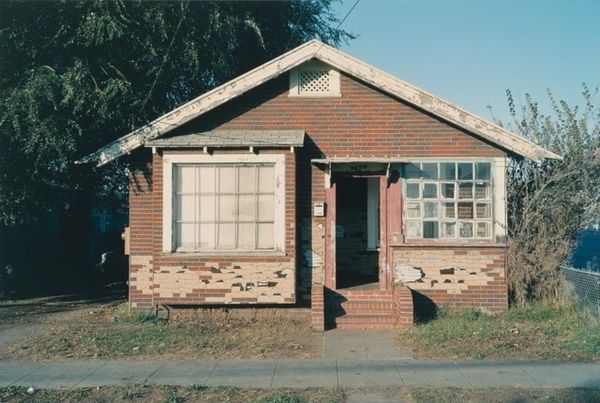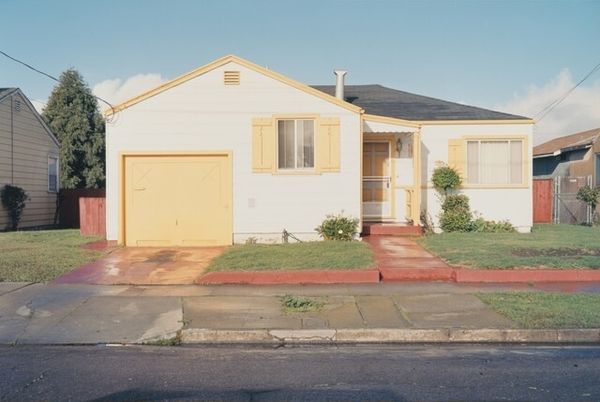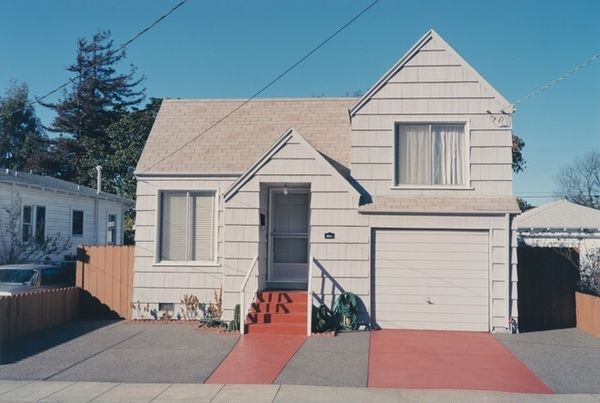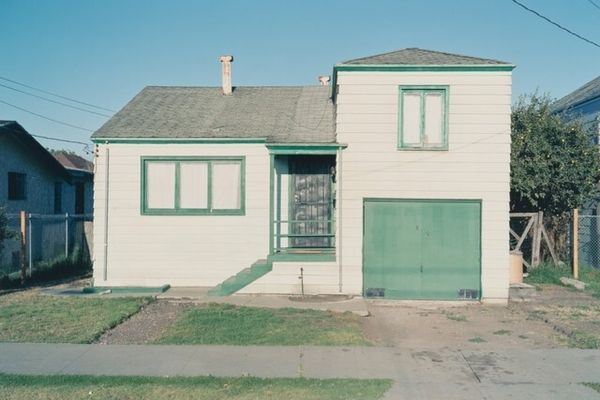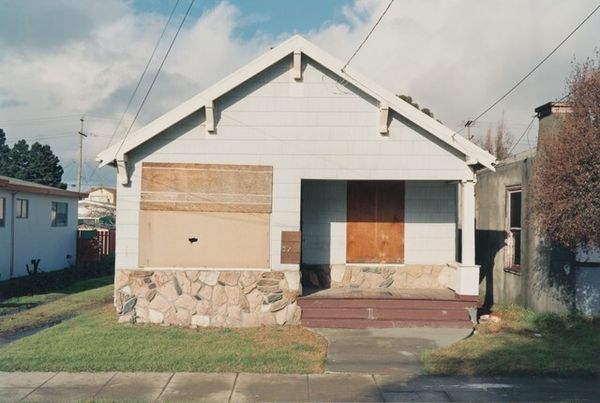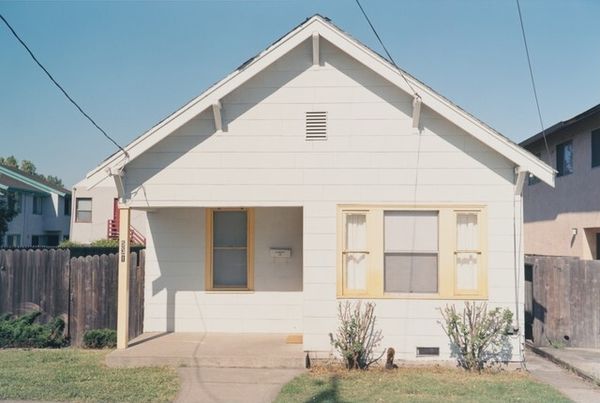
photography
#
landscape
#
outdoor photography
#
photography
#
cityscape
#
realism
Dimensions: image: 15.24 × 22.86 cm (6 × 9 in.) sheet: 20.32 × 25.4 cm (8 × 10 in.)
Copyright: National Gallery of Art: CC0 1.0
Curator: This is "Real Estate #912214," a photograph taken by Henry Wessel in 1991. Editor: Immediately, I’m struck by the flatness. It feels so…unromantic. Almost aggressively ordinary in its subject matter. Curator: Ordinary is perhaps the point. Wessel's work often focuses on seemingly mundane aspects of the American landscape, elevated through careful composition and attention to light. There’s a stillness here, isn’t there? Editor: Absolutely. Look at the light, how it sculpts the simple architecture, highlighting the pink trim. The house itself seems almost ghostlike, faded. But the lines of those overhead cables add an unsettling edge. How was it produced? I'm curious about his materials here. Curator: Wessel primarily used a Leica rangefinder camera. The images often evoke similar images in American cinema around that time: the lonely suburban uncanny, the alienation lurking in plain sight. The house as both a promise and a burden. Editor: It’s true that the house has a peculiar significance in the American psyche. I wonder if his decision to frame the house head-on, so starkly, isn’t a commentary on the real estate market itself. The materiality is slick, yet it depicts the run-down: A curious relationship. Curator: The title reinforces that idea of objectification, doesn’t it? “Real Estate #912214” reduces the home to a mere commodity. A piece of property detached from any real human presence or warmth. It's more an emblem than an abode. Editor: And yet, someone lived here. I can almost feel the labor etched into those faded boards. There’s a silent story embedded in this everyday structure and the material processes, isn’t it? Wessel managed to capture that contradiction. Curator: He certainly did. I appreciate how he transforms the mundane into something worthy of contemplation, making us question the deeper cultural narratives embedded within seemingly unremarkable scenes. Editor: Indeed, it pushes us to think about what's *actually* involved when turning houses into "real estate."
Comments
No comments
Be the first to comment and join the conversation on the ultimate creative platform.
